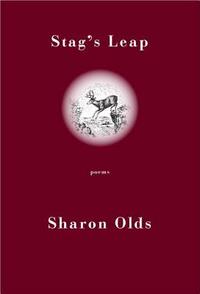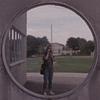Take a photo of a barcode or cover
emotional
reflective
sad
medium-paced
stunning. i won’t be able to read it again for a long time.
El libro me ha gustado mucho. El vocabulario utilizado en su versión original me pareció apropiado para mi nivel, si que preferí leerlo en inglés y no ir por la traducción.
Como dice bien la reseña, el poemario trata sobre las reflexiones de la autora sobre su proceso de divorcio, desde que su marido le dice que se quiere separar, los problemas que le ocurren durante el proceso, cómo lo sobrelleva y como su propio amor la intenta empujar a verlo esté donde esté y aunque esté con su nueva novia, y el período de comprensión de la situación que la lleva a aceptar la realidad y continuar con su vida. Siempre todo cargado de recuerdos sobre su matrimonio.
Se toma bien a pecho el hecho de ser poesía confesional, ya que muchas de las referencias son de interés muy personal de la autora, hasta el punto de que ciertas descripciones no aportan mucho en el valor expresivo de los poemas pero tienen ese valor intrínseco de mostrar su propio mundo desde sus ojos y no busca mostrar figuras poéticas que se ajusten a un solo contexto.
Los símiles y metáforas que utiliza son bastante originales y que van en esa revelación de lo personal, muchas de ellas con referencias a tejidos, vida y muerte de animales, paisajes, partes del cuerpo humano que le generan sensualidad como hombros y caderas, señales comerciales como el poema que le da nombre al libro, "Stag's Leap" (Salto de ciervo), que nace con la observación del sello de una marca de vinos y que empieza con una profunda y directa alusión al clímax de su desesperación, reflexiones tóxicas sobre el no poder estar con su marido:
"Then the drawing of the label of our favorite red wine
looks like my husband, casting himself off a
cliff in his fervor to get free of me"
(Me dí cuenta que el dibujo de la etiqueta de nuestro vino favorito
se parece a mi esposo, lanzándose a un
acantilado en su fervor por librarse de mí)
Este poema junto a "To our miscarried one, age thirty now" (Para nuestro descarriado, tendría unos 30 años hoy) son los que me han gustado por su tono personal y metáforas impactantes, sin pudor alguno, que me permitieron entender y empatizar con su peor momento durante el período de su divorcio. El poema habla sobre su aborto, invocándolo en su período de mayor tristeza como "el dios de lo inacabado" (I could see you today as a small, impromptu/ god of the partial). También me gustado bastante "Not quiet enough" ("No lo bastante tranquilo") donde cree que su costumbre de hablar dormida haya sido uno de las causas que lo motivaron a separarse de ella, pero entiende finalmente que pudo ser un aviso constante para él de estar con una persona que realmente no ama:
"I woke, and feared he felt he was the human
sleeper, and I the glittering panther
holding him down, and screaming"
(Me desperté, y sentí el miedo que él siente
estando dormido: yo soy la pantera resplandeciente
que lo sujeta y le ruge)
Quizá por ese valor hiper personal ofrecido por Olds que los poemas finales no me hayan gustado tanto, reflexiones que se separan de las metáforas y tienden a ser descripciones mucho más comunes. El poemario estira el espectro de situaciones que ocurren en un proceso de divorcio, pero luego del divorcio parecieran ir en direcciones mucho más formales. Con esto no quiero decir que esos poemas no me hayan gustado, todos los poemas del libro me han gustado, pero no tienen esa originalidad de las que disfruté desde el inicio del poemario.
Muy recomendado.
Como dice bien la reseña, el poemario trata sobre las reflexiones de la autora sobre su proceso de divorcio, desde que su marido le dice que se quiere separar, los problemas que le ocurren durante el proceso, cómo lo sobrelleva y como su propio amor la intenta empujar a verlo esté donde esté y aunque esté con su nueva novia, y el período de comprensión de la situación que la lleva a aceptar la realidad y continuar con su vida. Siempre todo cargado de recuerdos sobre su matrimonio.
Se toma bien a pecho el hecho de ser poesía confesional, ya que muchas de las referencias son de interés muy personal de la autora, hasta el punto de que ciertas descripciones no aportan mucho en el valor expresivo de los poemas pero tienen ese valor intrínseco de mostrar su propio mundo desde sus ojos y no busca mostrar figuras poéticas que se ajusten a un solo contexto.
Los símiles y metáforas que utiliza son bastante originales y que van en esa revelación de lo personal, muchas de ellas con referencias a tejidos, vida y muerte de animales, paisajes, partes del cuerpo humano que le generan sensualidad como hombros y caderas, señales comerciales como el poema que le da nombre al libro, "Stag's Leap" (Salto de ciervo), que nace con la observación del sello de una marca de vinos y que empieza con una profunda y directa alusión al clímax de su desesperación, reflexiones tóxicas sobre el no poder estar con su marido:
"Then the drawing of the label of our favorite red wine
looks like my husband, casting himself off a
cliff in his fervor to get free of me"
(Me dí cuenta que el dibujo de la etiqueta de nuestro vino favorito
se parece a mi esposo, lanzándose a un
acantilado en su fervor por librarse de mí)
Este poema junto a "To our miscarried one, age thirty now" (Para nuestro descarriado, tendría unos 30 años hoy) son los que me han gustado por su tono personal y metáforas impactantes, sin pudor alguno, que me permitieron entender y empatizar con su peor momento durante el período de su divorcio. El poema habla sobre su aborto, invocándolo en su período de mayor tristeza como "el dios de lo inacabado" (I could see you today as a small, impromptu/ god of the partial). También me gustado bastante "Not quiet enough" ("No lo bastante tranquilo") donde cree que su costumbre de hablar dormida haya sido uno de las causas que lo motivaron a separarse de ella, pero entiende finalmente que pudo ser un aviso constante para él de estar con una persona que realmente no ama:
"I woke, and feared he felt he was the human
sleeper, and I the glittering panther
holding him down, and screaming"
(Me desperté, y sentí el miedo que él siente
estando dormido: yo soy la pantera resplandeciente
que lo sujeta y le ruge)
Quizá por ese valor hiper personal ofrecido por Olds que los poemas finales no me hayan gustado tanto, reflexiones que se separan de las metáforas y tienden a ser descripciones mucho más comunes. El poemario estira el espectro de situaciones que ocurren en un proceso de divorcio, pero luego del divorcio parecieran ir en direcciones mucho más formales. Con esto no quiero decir que esos poemas no me hayan gustado, todos los poemas del libro me han gustado, pero no tienen esa originalidad de las que disfruté desde el inicio del poemario.
Muy recomendado.
Some poignant moments and I think if I could relate to any of it I would like it more. I just haven't experienced any of the things and emotions that she was writing about
This collection was difficult in a number of ways; on one hand, because it was hard for me, in some ways, to continue moving through poems that tackled the same difficult subject matter in different, albeit difficult, lights. The collection is very much the defeat of love, the immense and unquantifiable dissolution of a thirty-year long marriage. I found myself becoming engrossed and empathically broken by some, while skimming others; each poem is a pain in a different angle, a reexamination of the body once you are no longer standing in love's gaze (and so who gazes? And what does that voyeurism inflict?). Orion the Hunter weaves his way as a recurring motif, to supplement the themes of hunter and hunted, plenty and lack, foresight and hideous hindsight. Scenes from the ocean; the new mundanity of objects; birds, and their eggs; it all reads as a biography of disrepair, and the almost unthinkable question of "what do we do when love is never certain or secure?"
Painful. There was honesty and a maturity I would never have achieved. If that was reality, then Olds is a much better woman than I. I kept waiting for the unraveling. It was not there, or at least not shared. Nothing wrong with either of those, after all, it's about the poetry not the narrative reality that wrote them.
The lines "...when I say, Is this about/ her, and he says, No, it's about/ you, we do not speak of her" broke my heart. There were other, prettier and wittier, turns of phrase in this collection - all deserving admiration, but that tiny bit was what brought me as the reader to attention.
The lines "...when I say, Is this about/ her, and he says, No, it's about/ you, we do not speak of her" broke my heart. There were other, prettier and wittier, turns of phrase in this collection - all deserving admiration, but that tiny bit was what brought me as the reader to attention.
I almost feel guilty writing this given the intimate and difficult subject matter of the volume, but I found Stag's Leap disappointing. It lacks the energy and daring which made Olds's fantastic debut Satan Says (1980) such a joy to read. Having said that, the attention to detail and commitment to emotional honesty that characterise Olds's poetry remain, and this is exemplified by the following poems, which I felt were the strongest in the collection:
'On the Hearth of the Broken Home'
'The Healers'
'Sleekit Cowrin''
'On Reading a Newspaper for the First Time as an Adult'
'Left-Wife Bop'
'What Left?'
While I understand the need to write about such a traumatic event in order to make sense of and heal from it, I can't help but feel that many of these poems ought to have remained unpublished. The unremitting focus of the volume on the subject of divorce and the poet's ex-husband is stultifying rather than illuminating, and this does an injustice to the several very good poems listed above.
'On the Hearth of the Broken Home'
'The Healers'
'Sleekit Cowrin''
'On Reading a Newspaper for the First Time as an Adult'
'Left-Wife Bop'
'What Left?'
While I understand the need to write about such a traumatic event in order to make sense of and heal from it, I can't help but feel that many of these poems ought to have remained unpublished. The unremitting focus of the volume on the subject of divorce and the poet's ex-husband is stultifying rather than illuminating, and this does an injustice to the several very good poems listed above.
A gorgeous, excellent read. The first time in a very long time that a poem has given me literal goosebumps is from this collection. These are graceful and shattering poems. Olds writes more beautifully on her divorce than most could write on their so called 'happily ever afters'. In short, stunning.
Beautiful collection of poetry concerning lost love and lost identity. Though my heart ached with each poem, some causing deep splinters, I envied the beauty of the words. I envied Olds' ability to give art to such a common experience.







